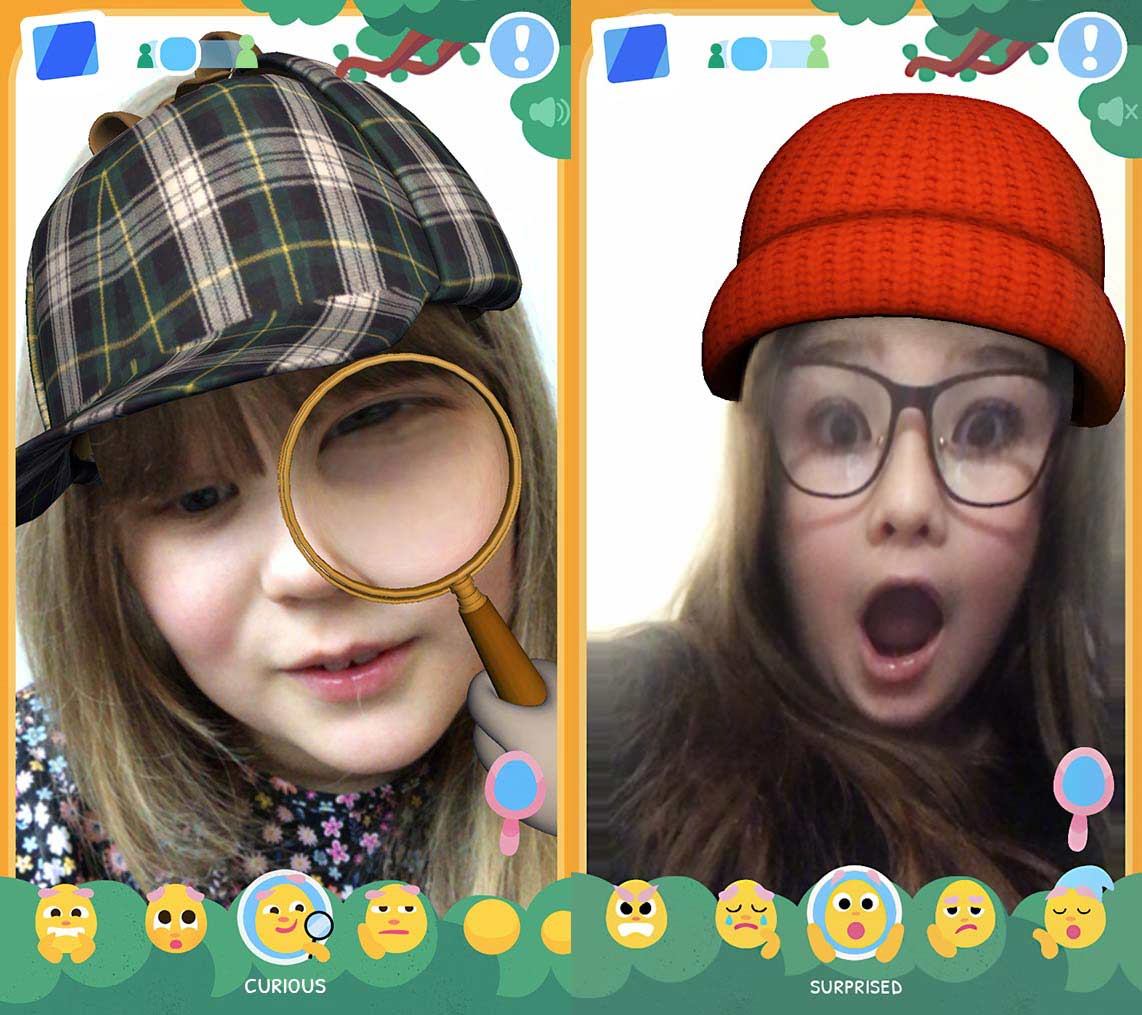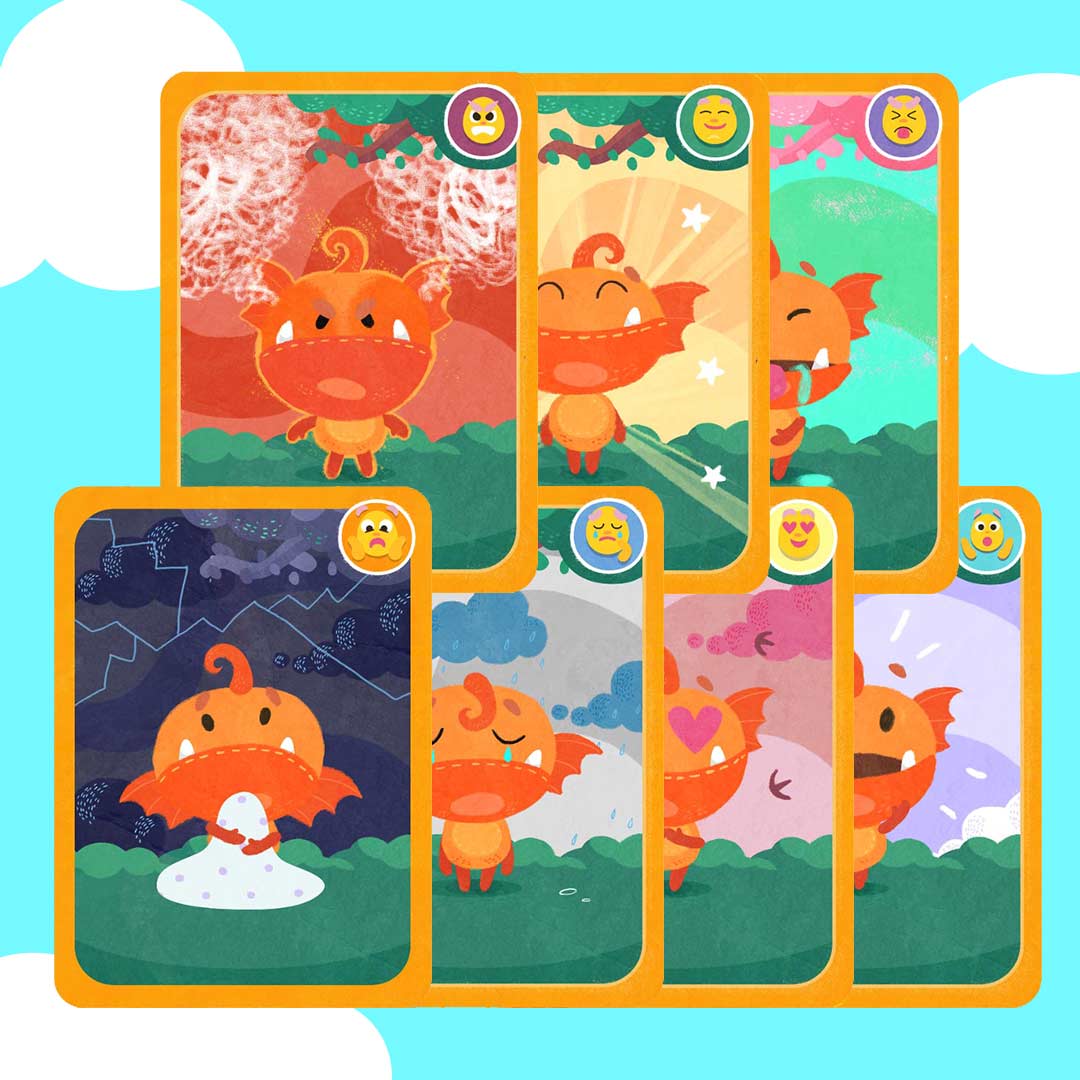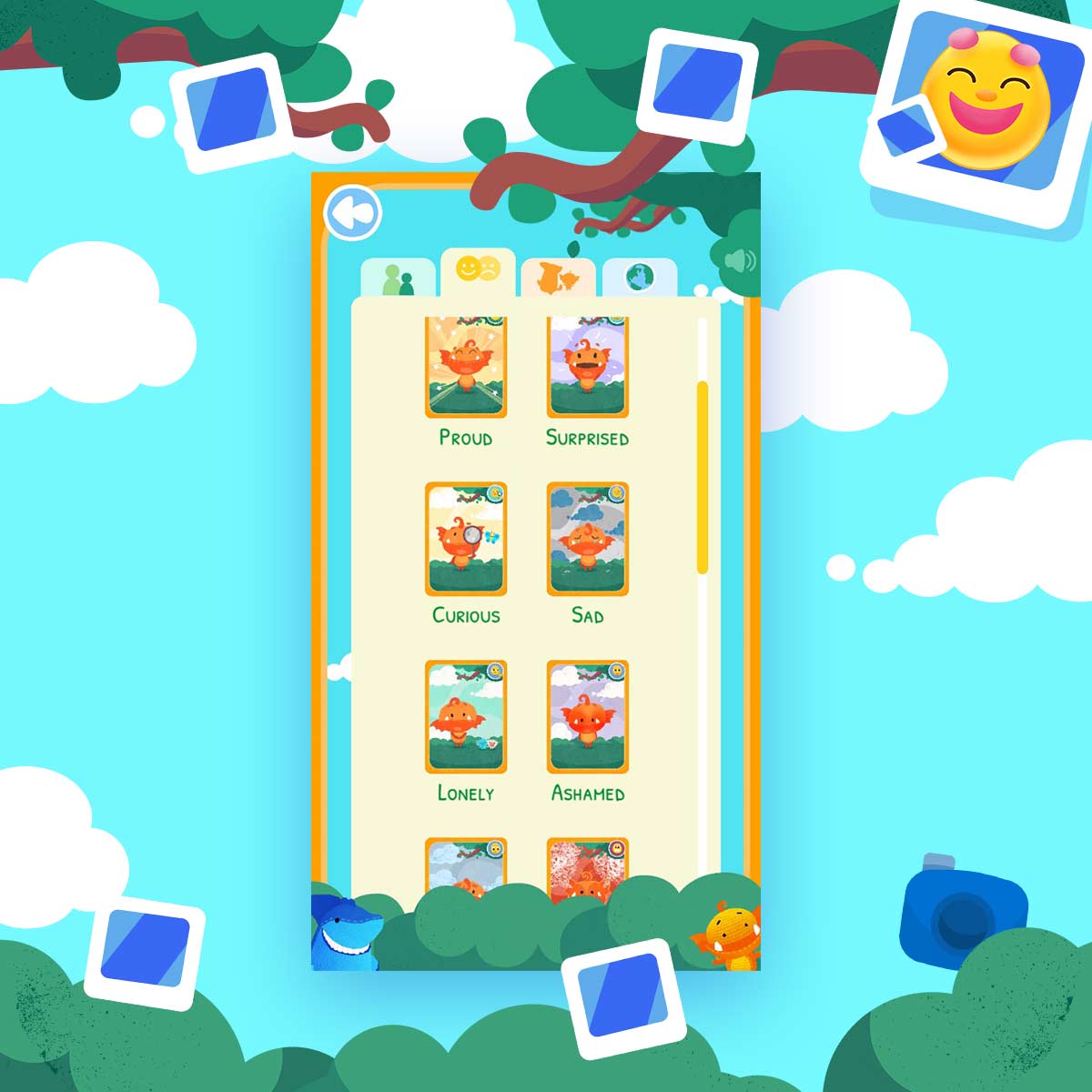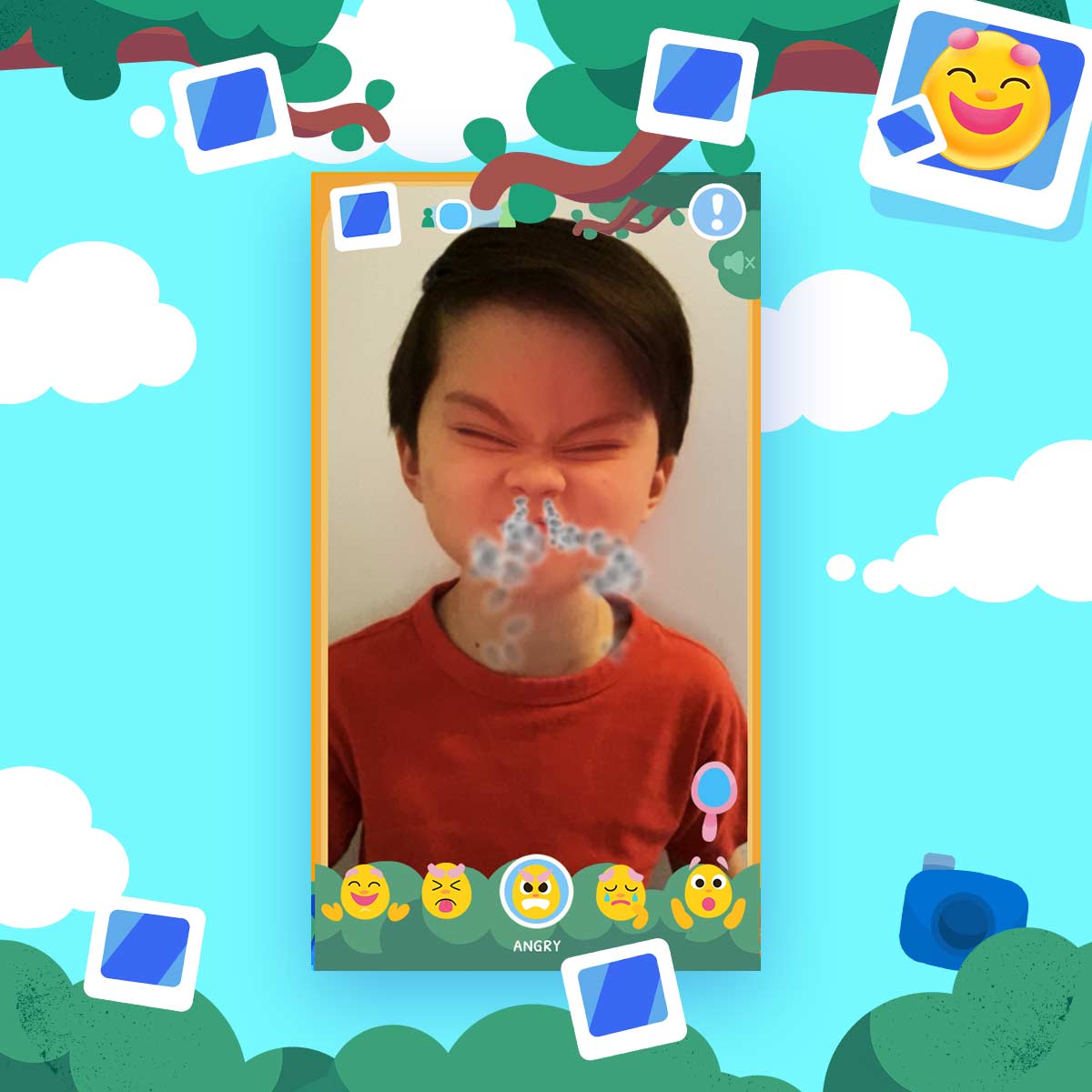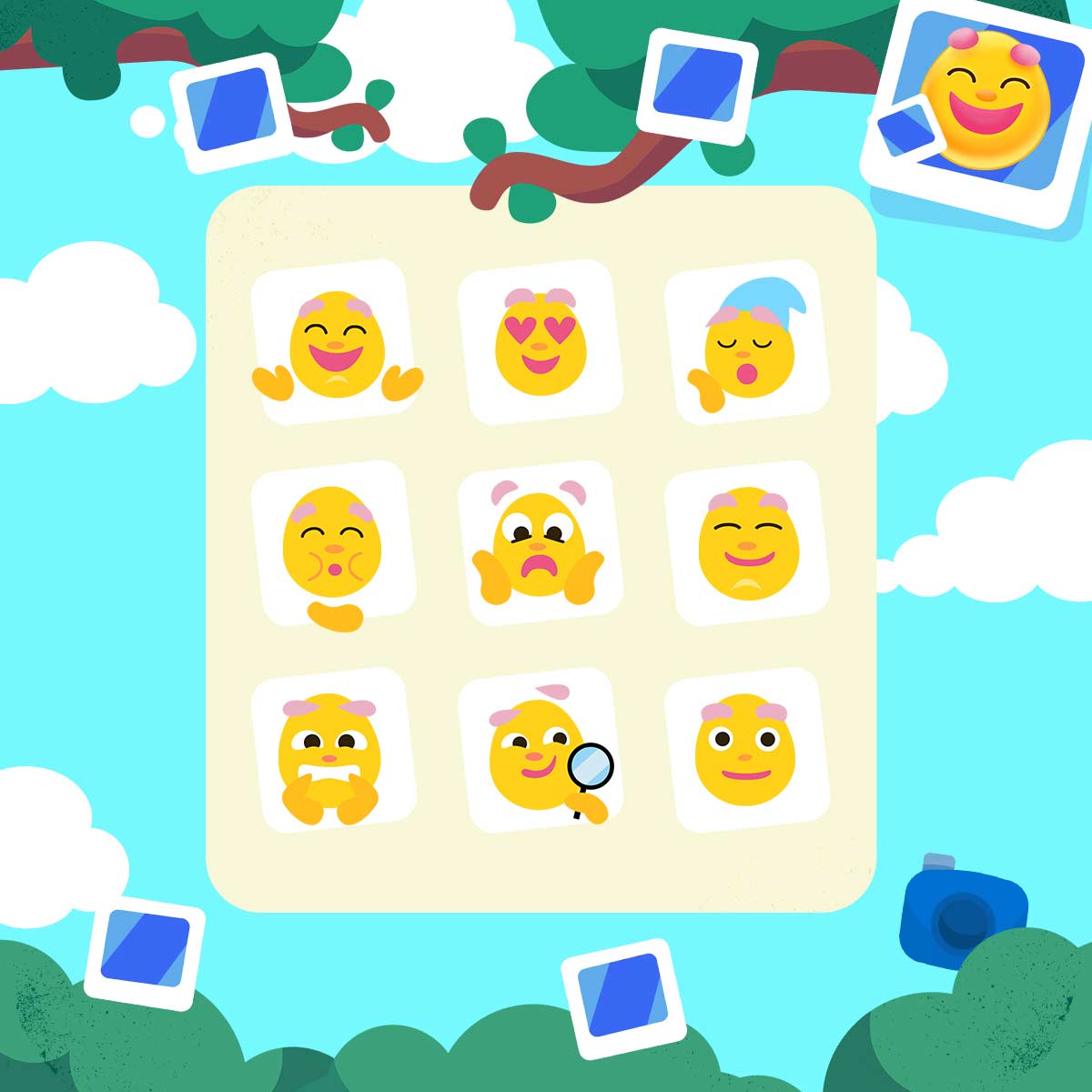Moka Mera Emotions
Social and emotional learning application
Moka Mera Emotions is a fun and creative tool to explore and discuss emotions. Use the application together with your child, or in a small group of children, and let the children recognize the range of emotions in themselves with the emotional filters. Help the children to express their emotions verbally. Teach them how to deal with overwhelming emotions and how to treat others with kindness and empathy. This is a fun way to explore the range of emotions we have, and the app works as a basis for meaningful discussions.
Download now
The app is free in Finland
Explore and learn how to identify emotions
Moka Mera Emotions is a playful, educational app for children where they can explore and learn how to identify their emotions using emotional filters and drawn emotion cards. This app can be used in early childhood education by children together with their teachers, or at home with their parents.
The emotional filters are a good tool for strengthening self-esteem and self-confidence. The filter “happy” transforms the child’s mouth into a smile. The filter “angry” generates smoke that comes out from the child’s nostrils, whereas the filter “sad” creates animated tears coming out from the child’s eyes. The purpose of the photographs is to teach the children how to identify, manage, express, and discuss emotions as well as understand and manage the emotions of others, which strengthens the children’s emotional skills.
By tapping the emoticons in the app, representing 19 different emotions, the image of the child’s face will change accordingly. The face becomes e.g. sad, surprised, angry, or happy.
There are 7 core emotions in the app; Happy, Surprised, Sad, Angry, Disgusted, Afraid, Love. There are 12 additional emotions; Proud, Curious, Lonely, Ashamed, Disappointed, Jealous, Bored, Sleepy, Shy, Worried, Nervous, Relieved, and Me (no specific emotion). Additionally, there are 19 drawn emotion cards with Moka Mera, the little monster, representing the same 19 emotions. For some children, it can be easier to start with the drawn emotions cards with pictures not representing themselves.
The languages available in the app are English, Spanish, German, French, Portuguese, Russian, Arabic, Mandarin, Japanese, Hindi, Swedish, and Finnish.
Relevant questions to discuss with the child
It’s up to you how educational you want Moka Mera Emotions to be, by regulating the level with your questions and discussions with the children.
Relevant questions can address the emotion, or the child’s response to it, or focus on the emotions of others: Name the emotion together with the child.
- How does the emotion feel inside you?
- Where in your body do you feel the emotion?
- How do you look in the picture?
- Where did the emotion come from?
- In what situation do you feel this way? Why?
- How can you respond to the emotion or what can you say to it?
- How can you calm down or overcome the emotion (if negative)?
- What can you do to make your friend feel happy/surprised/relieved?
- How did your friend feel? Why?
- What can you do to support your friend?
Sometimes it can be easier to approach the emotion in a more abstract way:
- What color does the emotion have?
- What does it taste like?
- How does it sound?
- What does the emotion look like?
We take privacy seriously
The application is safe for your child to use and no internet connection is needed. We don’t gather any usage data and there are no advertisements, outside links, or in-app purchases available. The app works offline.
Learning through play
Moka Mera Emotions was developed in Finland, and it is based on the Finnish method of early childhood education. In order to produce the best possible content, the app has been developed in collaboration with educators and researchers.
We utilize the power of ”learning through play”, a scientifically proven concept of learning which combines training with gameplay. This means that learning happens seamlessly and is fun and the skills acquired are easy to remember.
Read more

